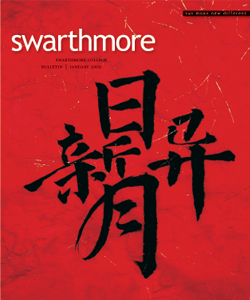Racism and the Social Sciences
I was consulted by a friend who was working on an intercollegiate curriculum committee reviewing social science requirements. The question was, “What needs to be added?”
During my years at Swarthmore (1961–1965), the curricular battle cry was “Sociology Now”—today a moot issue, but then quite radical. My outcry now is for “The Politics of Equality,” an experiential examination of the conflicting demands of minority and identity groups as they challenge oppression.
Racism and its variants (sexism, heterosexism, ageism, et. al.) require special treatment in a social science curriculum because they represent the socio-political aspect of two inescapable human paradoxes: I/Other and Us/Them. These distinctions present paradoxes in that they are both at the root of a child’s developing psychological agency and physical safety—and also, as primary examples of the ability for differentiation, they are at the very base of logic and abstract thought. Yet they are set against the central ethical tenet of philosophy and religion: Do unto others as you would have others do unto you.
This paradox is manifest in the term “discrimination,” which generically means the power to discern and differentiate but which historically has been implicated in injustice and oppression. In the American experience, it was prominently imbedded in the Constitution’s eloquent assertion that “all men are created equal … with inalienable rights” at the same time that genocide and slavery, religious persecution, women’s inferior status, and class disenfranchisement were accepted in the social and legal mores of the time.
Because the working of these paradoxes is built into every individual’s personal and social development, sociopolitical discrimination and liberation movements are not simply historical material that can be “covered.” They must be experientially understood as an aspect of human evolution that each one of us wrestles with. Students need to see how it operates in themselves and each other, how it poses difficult problems of universal principles versus ingrained beliefs, of personal knowledge and loyalty versus engagement with the personal reality of others.
The “study” of this essential material is challenging emotionally as well as intellectually. It demands intense engagement, opportunities for interpersonal exchange among both class members and instructors, and time for the development of synthesized values and perceptions that are not just to be reiterated on exams. Understanding the unavoidable confusions between personal identities and the categorical imperatives of human rights requires time, space, and focus; and it needs to be legitimated as a core activity of a liberal education such as Swarthmore purports to provide.
Richard Stone ’65
Fresno, Calif.
 Email This Page
Email This Page